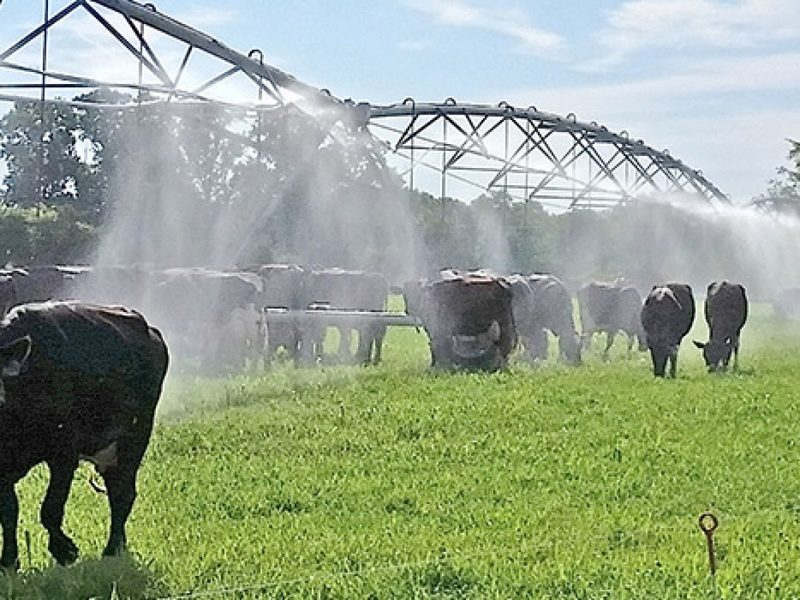
June Agriculture Happenings
It is summer time now and planted crops are showing throughout our area. When you look into the fields, you can find small corn and soybeans plants. Farmers that grow hay are looking to cut and bale their crop, then it will go through the growing cycle again. Now that crops are in the ground, farmers will monitor them for weed control, any fertilizer needs, or other pest management practices. On the livestock side, chores to care for the animals likely stay the same. However, during the hot summer months farmers will ensure that their animals are being checked frequently for signs of overheating and put preventative measures into place. Farmers with livestock also may be preparing their animals for fair season and livestock competitions.
Every situation varies, but many farmers plan out how they will control weeds and pests, along with providing the crops with needed supplements, before they even begin planting. This gives the farmers a head start on knowing costs they should account for and allows them to plan better. For example, planted corn wants (and needs) extra nitrogen. Adding this after the crop is emerging from the ground is called sidedress. Some people put nitrogen on before they plant, some in the fall season, some different combinations… There are many ways to do it and each farmer does what works best for their operation.
To make a plan, farmers may work with their salesmen, an agronomist, a crop consultant, or other options. For weed management, farmers can choose to hire a custom applicator. A custom applicator operates the spraying equipment and is responsible for the application of pesticides and fertilizer to be applied effectively. They apply the appropriate mix of the product being sprayed on the crop at approved application rates. Custom applicators know the importance of communication with their team and the customer, as well as maintaining accurate application records.
To prepare for a custom applicator, farmers check their fields to make sure that the conditions are fit for the sprayer. If the field is too wet, they would run the risk of the machine getting stuck or leaving large ruts in the ground. Checking the fields by farmers or other people involved in the process also allows for last minute changes of what product is needed to combat the weed or pest problem. Some farmers will operate the sprayers themselves and just buy the product they need to apply.
For farmers with livestock, they ensure that the animals do not get overheated. The animals get to spend more time outside and farmers put preventative practices in place to combat overheating. Preventative practices include implementing air circulation systems in barns and providing fresh, cool drinking water for their animals. Other approaches to keeping livestock cool are a misting system, water pool, mud areas, or a pond that the animals have easy access to.
Irrigation levels are important to monitor in the summertime. The importance of irrigation for successful crops is dependent on the rain levels of the year. Some farmers in our area do not need to have irrigation systems in their fields, meaning that they can just rely on natural irrigation from rain to provide their fields with the amount of water they need. It is more common to see farmers over in the Manito/Green Valley area using irrigation systems to keep their fields at the proper hydration level. Their soil type differs from what is found in McLean County.
Although summer may not be commonly thought of as a farmer’s “busy season”, it is a critical step in the growing practice of crops and care of livestock. The things that farmers must do in the summer set up their operation for a successful fall season.